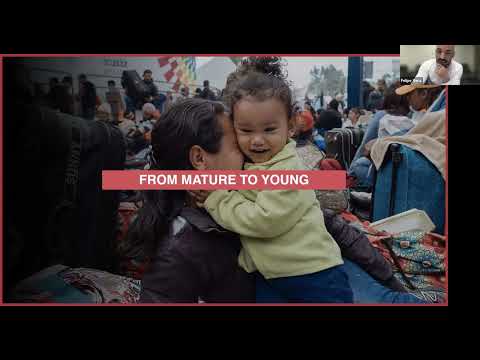
Stories about Sustainability presents ideas inspired by architecture, materials and history from around the world.
We face a vulnerable future due to the accelerated intensity of natural and humanitarian disasters. The resultant scale of unprecedented migration has been coupled with a lack of infrastructures to accommodate the climatic displacement giving rise to new and more complex forms of vulnerability. While current estimates account for 250 million of international migrants, predictions indicate that by 2050 this number will increase to 350 million of which 60% will have been displaced due to environmental factors. These climate crises accentuate inequalities as the most vulnerable groups resort to informal settlements in areas with the greatest exposure to effects of environmental hazards. In short, in the near future, the landscape of informality will be a direct reflection of the effects of climate change and its intensified migration. Latin America exemplifies this twofold transition as approximately one third of its urban dwellers live in informal settlements.
The lecture will focus on Argentina where throughout the past five years, the number of informal settlements has seen a 25% increase from about 4,000 to 5,000. We will discuss a series of precarious neighbourhoods in the city of Buenos Aires along the Riachuelo river and the ecological infrastructure needed to integrate vulnerable settlements into the formal city. It will reflect on how to adequately articulate the climate transition impacting the areas where the most vulnerable live by designing proposals to mitigate/anticipate, adapt/connect, and restore/upgrade these settlements.
Felipe Vera is a Chilean architect and urbanist. He is a Design Critic in Urban Planning and Design at Harvard GSD faculty. He has been the director of the UAI Research Center for Ecology. Vera has written and lectured extensively on issues about urban design and planning, migration, inequity, climate fragility and ecology in vulnerable and informal contexts in Latin America.
Jose Alfredo Ramirez is an architect, director of AA Groundlab, co-director of the Landscape Urbanism MArch/MSc Postgraduate Programme and director of the Mexico Visiting School at the AA. He studied Architecture in Mexico City and a Landscape Urbanism MA at the AA in 2005. At AA Landscape Urbanism he explores the consequences of the potential implementation of a Green New Deal in the UK. He is a dual Mexican and British citizen, has published and lectured worldwide on landscape urbanism as well as the work of Groundlab.
Clara Olóriz Sanjuán, PhD, is a tutor and practising architect. She teaches at the AA Landscape Urbanism masters programme. She co-directs AA Ground Lab, where she develops climate change policy projects and researches on socio-hydrological resilience under the British Council institutional links programme. Her agenda focuses on landscape-oriented design and territorial practices, interrogating the roles designers can play in aligning themselves with organisations working on just climate policies.